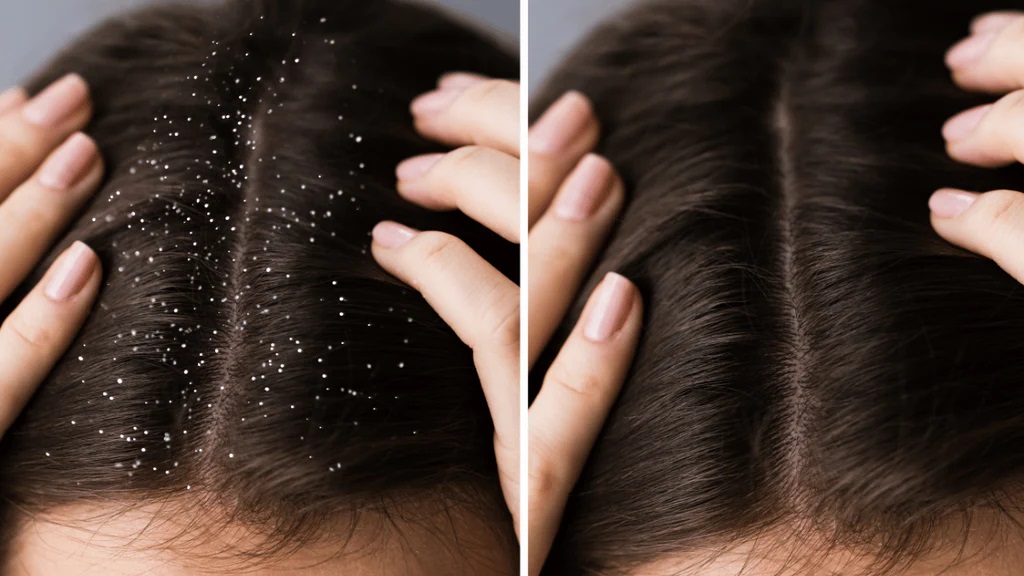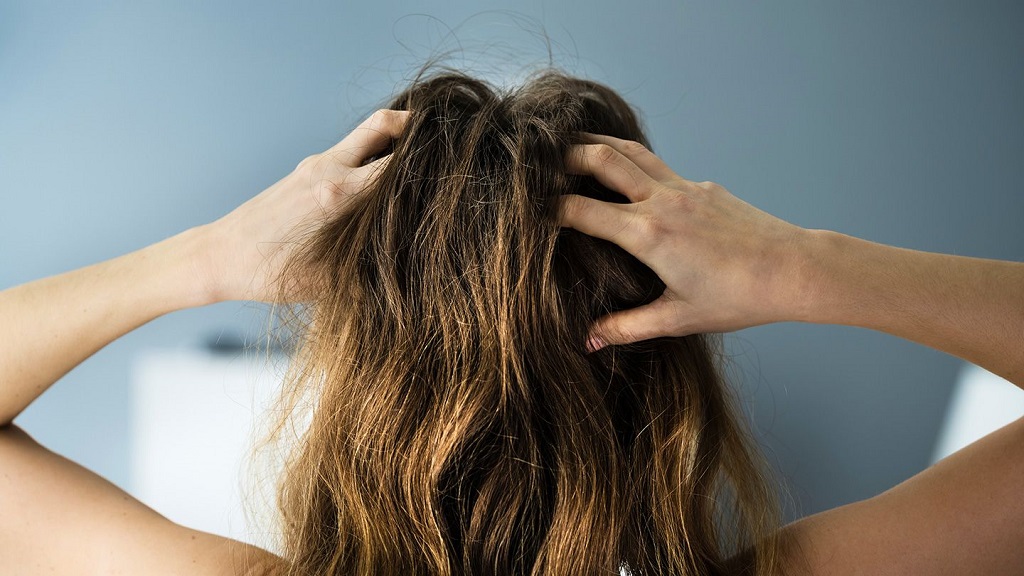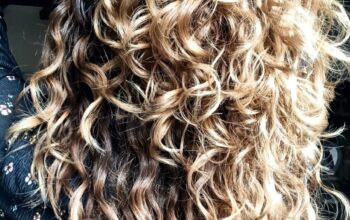Dandruff, characterized by those annoying white flakes on your scalp and shoulders, can be a persistent and embarrassing problem. While a complete and permanent “cure” might be elusive, incorporating natural remedies into your hair care routine can significantly reduce dandruff and keep those pesky flakes at bay.
This article explores various natural solutions for managing dandruff, delves into the root causes, and offers valuable tips for maintaining a healthy scalp. Discover effective DIY treatments, explore natural ingredients to incorporate into your routine, and learn how lifestyle habits can influence scalp health.
Important Note: While natural remedies can be very effective for dandruff, if your dandruff is severe or doesn’t respond to these methods, consult a dermatologist. They can diagnose the underlying cause and recommend appropriate medical treatment.
Understanding the Itch: Causes of Dandruff
Before diving into solutions, let’s explore the common culprits behind dandruff:
-
Dry Skin: This is a frequent cause of dandruff. When your scalp lacks moisture, it produces extra skin cells, which flake off and become visible as dandruff.
-
Seborrheic Dermatitis: This chronic skin condition causes an oily, red, and itchy scalp, often accompanied by dandruff.
-
Malassezia Yeast: This naturally occurring yeast thrives on scalp oils. An overgrowth of this yeast can contribute to dandruff development.
-
Sensitivity to Hair Products: Certain ingredients in shampoos, conditioners, or styling products can irritate the scalp and trigger dandruff.
-
Stress: While the exact link isn’t fully understood, stress can exacerbate existing dandruff or contribute to its development.
Remember: Identifying the underlying cause of your dandruff is crucial for finding the most effective treatment approach.
Nature’s Arsenal: Effective DIY Treatments for Dandruff
Here are some natural remedies you can try at home to combat dandruff:
-
Apple Cider Vinegar Rinse: Mix equal parts apple cider vinegar and water in a spray bottle. After shampooing, spritz your scalp with the diluted solution and massage it gently. Leave it on for a few minutes before rinsing thoroughly. The acidity of apple cider vinegar can help balance scalp pH and combat Malassezia yeast growth.
-
Tea Tree Oil Treatment: Tea tree oil possesses antifungal and anti-inflammatory properties. Dilute a few drops of tea tree oil with a carrier oil like coconut oil or jojoba oil. Massage the mixture into your scalp and leave it on for 15-20 minutes before rinsing thoroughly. Caution: Tea tree oil can be irritating to some people. Perform a patch test on your inner elbow before applying it to your scalp.
-
Aloe Vera Gel: Aloe vera’s soothing properties can help calm an itchy scalp and reduce inflammation. Apply pure aloe vera gel directly to your scalp and leave it on for 30 minutes before rinsing thoroughly.
-
Aspirin Scalp Scrub: Crush a few uncoated aspirin tablets and mix them with a tablespoon of your regular shampoo. Massage the mixture into your scalp for a few minutes before rinsing thoroughly. Salicylic acid in aspirin helps exfoliate the scalp and remove dead skin cells.
Remember: Consistency is key. Use these DIY treatments regularly for optimal results. If you experience any irritation, discontinue use immediately.
Natural Ingredients for a Healthy Scalp: Enhance Your Hair Care Routine
Here are some natural ingredients to consider incorporating into your hair care routine for long-term dandruff management:
-
Coconut Oil: This readily available oil possesses antifungal and moisturizing properties. Massage coconut oil into your scalp before shampooing to promote scalp health and combat dryness.
-
Jojoba Oil: Similar to the scalp’s natural sebum, jojoba oil can help balance oil production and prevent dryness. Use it as a scalp massage oil or add a few drops to your shampoo.
-
Oatmeal: Oatmeal’s anti-inflammatory properties can soothe an itchy scalp. Grind oatmeal into a fine powder and add it to your shampoo for a gentle scalp exfoliation.
-
Tea Tree Oil Shampoo: Look for shampoos formulated with tea tree oil. These can be particularly effective for dandruff caused by Malassezia yeast overgrowth.
Important Note: Always choose gentle, fragrance-free shampoos and conditioners. Harsh chemicals can irritate the scalp and worsen dandruff.
Beyond Products: Lifestyle Habits for Scalp Health
Maintaining a healthy scalp goes beyond just products. Here are some lifestyle habits to adopt:
-
Manage Stress: Chronic stress can exacerbate dandruff. Practice stress-reduction techniques like yoga, meditation, or deep breathing to keep your stress levels in check.
-
Get Enough Sleep: Aim for 7-8 hours of quality sleep each night. During sleep, your scalp repairs and regenerates itself, promoting overall scalp health.
-
Eat a Balanced Diet: A healthy diet rich in fruits, vegetables, and whole grains provides your body with the nutrients it needs for healthy skin and scalp. Aim to stay hydrated throughout the day as well.
-
Wash Hair Regularly: While over-washing can strip your scalp of natural oils, not washing it enough can allow dead skin cells to build up and contribute to dandruff. Find a washing frequency that works for you, typically 2-3 times per week.
-
Avoid Harsh Styling Practices: Tight hairstyles, frequent heat styling with straighteners or curling irons, and harsh chemical treatments can all irritate the scalp and worsen dandruff. Opt for gentler styling methods and limit heat exposure whenever possible.
-
Reduce Alcohol and Smoking: Excessive alcohol consumption and smoking can contribute to dry skin and scalp issues, including dandruff. Consider limiting your intake of these substances for overall health and scalp well-being.
Remember: Consistency is key. Implementing these lifestyle changes alongside natural remedies and a gentle hair care routine can significantly improve your scalp health and keep dandruff under control.

When to Seek Professional Help: Consulting a Dermatologist
If your dandruff is severe, persistent, or doesn’t respond to natural remedies, consult a dermatologist. They can:
-
Diagnose the underlying cause: A dermatologist can accurately diagnose the cause of your dandruff, whether it’s dry skin, seborrheic dermatitis, or something else entirely.
-
Recommend Medical Treatments: Depending on the diagnosis, they might recommend stronger medicated shampoos, topical corticosteroids, or antifungal medications to target the specific cause of your dandruff.
Remember: Early diagnosis and proper treatment are crucial for managing dandruff effectively.
Related: How to Take Care of Wavy Hair
Conclusion: A Balanced Approach to Dandruff Management
Dandruff, while a common concern, doesn’t have to be a permanent fixture in your life. By incorporating a combination of natural remedies, a gentle hair care routine, and healthy lifestyle habits, you can effectively manage dandruff and achieve a healthy, flake-free scalp. Listen to your scalp, experiment with different natural solutions, and don’t hesitate to consult a dermatologist if needed. With a holistic approach, you can achieve a healthy scalp and regain confidence, flake-free.




